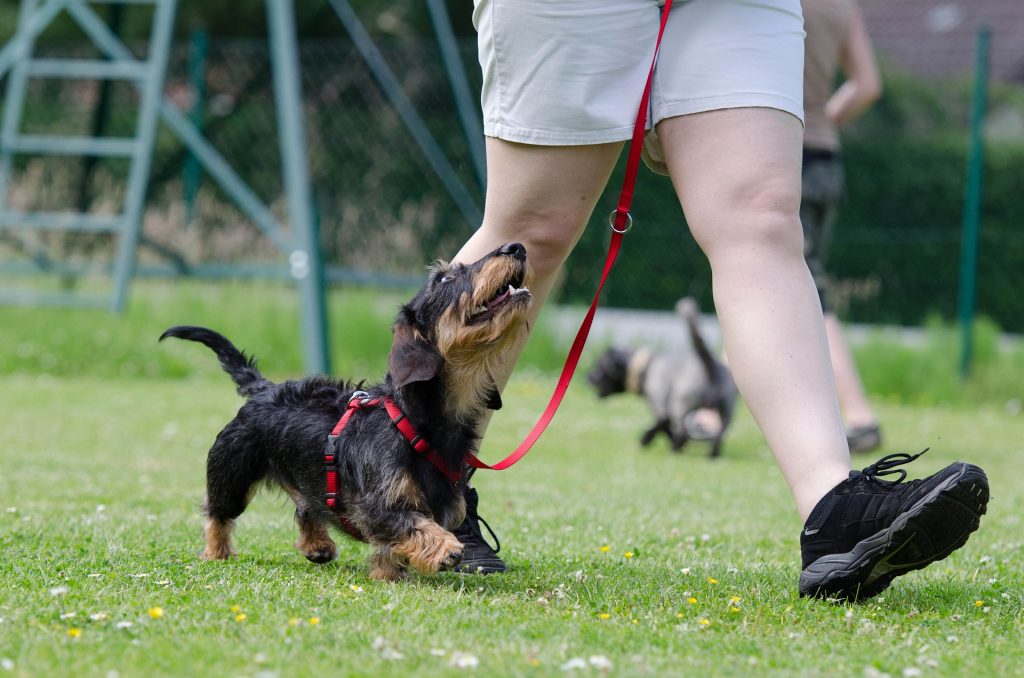I am the proud owner of a senior dog, Smudge, and two youngsters, Swayze and Rue. I have always put time and effort into training my dogs. And with me now being a senior, and devoting time to both young dogs, it has been challenging to say the least. I plan to do some performance with both in my future, just as I did with Smudge. I love performance dog sports. But now I have smaller goals, such as Canine Good Citizen, which Swayze has already achieved. And of course therapy dog certification is in our future.
Success is sweet
When you have a goal and achieve it, there is no better feeling. And today I had that glorious feeling with Rue. Swayze tends to be quieter, whereas Rue is VERY exuberant. He has the Border Collie smarts, but it can be very difficult to channel and capture desired behaviors, such as stay. Heck, Rue cannot sit still for very long. Two weeks ago in class, Rue just kept popping up as we practiced this exercise, and I knew we had to concentrate more on Rue’s control, or lack thereof! Today in class Rue was, well, spectacular! I put him on a down stay and he did not move. He held his position with total focus on me, even while the other dogs on the floor were moving about and barking. Not only did we have great success, but at an even higher level with the environmental distractions. Success! What a proud moment.
Why make the effort?
Why train your dog? People used to think that dog training was only about teaching dogs obedience commands, usually through the use of heavy-handed punishment-based techniques. It was viewed as somewhat of a luxury for pet parents and was often wrongly considered to be something so straightforward and simple to achieve that anyone could do it on their own without the help of a professional.
That sentiment does still exist to a degree, but increasingly, dog owners are beginning to recognize that although the profession of dog training is not regulated, there is sometimes life-saving value in finding the perfect trainer to help point them and their dogs in the right direction and provide much-needed guidance.
The fact is that the majority of owned dogs have had no formal training. Since dogs are now sharing our homes and our lives in ever closer ways, it is more important than ever that every dog be given a good canine education. Doing so will prevent thousands of dogs being surrendered to shelters due to behavioral issues that could have been prevented. Investing the time to teach your dog will make living with her easier and that investment could also save her life.
5 reasons why you should train your dog
1. To build a positive relationship: One of the best ways to build a healthier relationship with your dog is to understand how your dog learns and use the principles of positive training to make learning as rewarding, successful and easy as possible. Punitive trainers believe that in order to achieve so-called ‘balance’ with your dog, you must first teach her who is boss by becoming her ‘alpha’ or ‘pack leader.’ This approach is doomed to fail from the start because the methods used to establish this dominant status are physically and psychologically damaging to your dog and dangerous for your positive training, which rewards and motivates a dog for good behavior, allows you to foster a relationship with your dog based on mutual trust and respect instead of fear and intimidation. The most effective teachers are those who can influence behavior in their dogs without the use of force and work through any problems in a humane manner. Dogs that are taught using positive reinforcement methods are more tolerant, self-controlled and behave much more predictably in different situations. They are more confident and happier overall.
2. To teach life skills: Every dog needs to learn how to live successfully in a home environment. Domestic dogs might seem to have an easy life compared to their wild counterparts, but living in a human world comes with certain unique pressures. Teaching your dog basic manner skills and providing her with enough mental enrichment and physical exercise will prevent her from developing anxiety and other stress related behaviors such as destructive chewing, inappropriate barking and aggressive display. An important part of the learning process is to set your dog up for success by managing her environment and making it easy for her to do well. This begins with understanding how your dog copes in certain situations.
3. To increase sociability: Increasing your dog’s enjoyment of social interaction will give her the confidence to deal with the pressures of domestic life. Training your dog to have good manners and behave well in different situations requires effort, but consistent commitment ensures success. We have high expectations for our dogs, encouraging them to be friendly with everyone they meet, even if they are uncomfortable in certain situations. It is therefore vital to socialize your dog by giving her good experiences in the presence of all kinds of people, animals and environments. Doing so at a young age will give her confidence and lessen the chance of her experiencing anxiety and discomfort in adulthood.
4. To avoid problem behaviors: Training your dog builds up a language of communication between you that promotes security and comfort. The more time you invest teaching your dog to live successfully in a human world the more you will avoid problem behaviors that come from lack of understanding. Unfortunately, many dogs end up being punished for negative behavior that could have been avoided if time was taken to help them learn. Many dogs respond well to cues such as sit and stay in the classroom, but remain unprepared to deal with life’s pressures in the real world. Make sure that every cue or action has a purpose behind it.
5. For loyalty and companionship: Positive reinforcement does not mean you do not mark your dog’s misbehavior, just that the ‘discipline’ should be used as constructive guidance rather than as an intimidation technique. Discipline in the form of time outs, removal, vocal interrupters or simply ignoring behavior that you do not like, are far more effective than harshly suppressing negative behavior. Guiding your dog into making the right choices and understanding what she needs to be happy will help increase the bond between you.
Training is an integral part of teaching your dog manners and desired behavior in various situations. The time and effort you put into training will come back to you tenfold, guaranteed!
Dog bless.
Resource: Victoria Stilwell

Judy Endo is the author of Paws-itive Pet Tales. A lifelong resident of the Wilkes-Barre area, she has been a professional dog trainer/competitor as well as a lifetime animal lover and strong supporter of animal rescue. Contact: judyendo@outlook.com




